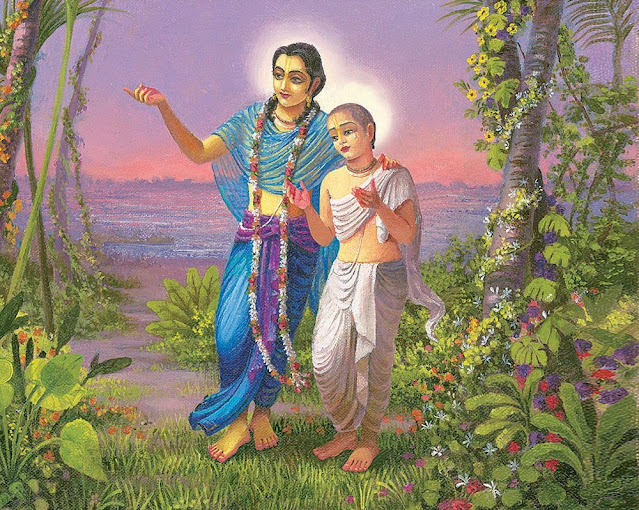"Kṣamā (forgiveness) is the bhāva situated between humility and compassion"
The following is an excerpt from Śrīla Bhaktivinoda Ṭhākura's Jaiva Dharma, chapter 8.
Nityānanda dāsa: It seems from this that one cannot be a Vaiṣṇava without humility and compassion.
Bābājī: That is quite true.
Nityānanda dāsa: Then does Bhakti-devī depend on humility and compassion?
Bābājī: No, bhakti is completely independent. Bhakti is the personification of beauty and she is the supreme ornament; she does not depend on any other good quality. Humility and compassion are not separate qualities, but are included within bhakti. “I am a servant of Kṛṣṇa,” “I am destitute,” “I have nothing,” “Kṛṣṇa is my all-in-all‚” – the bhakti that is expressed in these attitudes is itself humility (dainya).
The tenderness of heart experienced towards Kṛṣṇa is known as bhakti. All other jīvas are servants of Kṛṣṇa, and tenderness of heart towards them is compassion (dayā). Therefore, compassion is included within bhakti.
Kṣamā (forgiveness) is the bhāva situated between humility and compassion. “When I am so wretched and insignificant myself, how can I inflict punishment upon others?” – when this attitude is combined with compassion, forgiveness automatically appears. Forgiveness is also included in bhakti.
Kṛṣṇa is satya, real. The fact that the jīvas are servants of Kṛṣṇa is also real, as is the fact that the material world is only a boarding house for the jīvas. That means that bhakti is also real, because these truths are based on the jīvas’ relationship with Kṛṣṇa, which is itself bhakti. Truth, humility, compassion, and forgiveness are four special qualities that are included in bhakti





Comments
Post a Comment